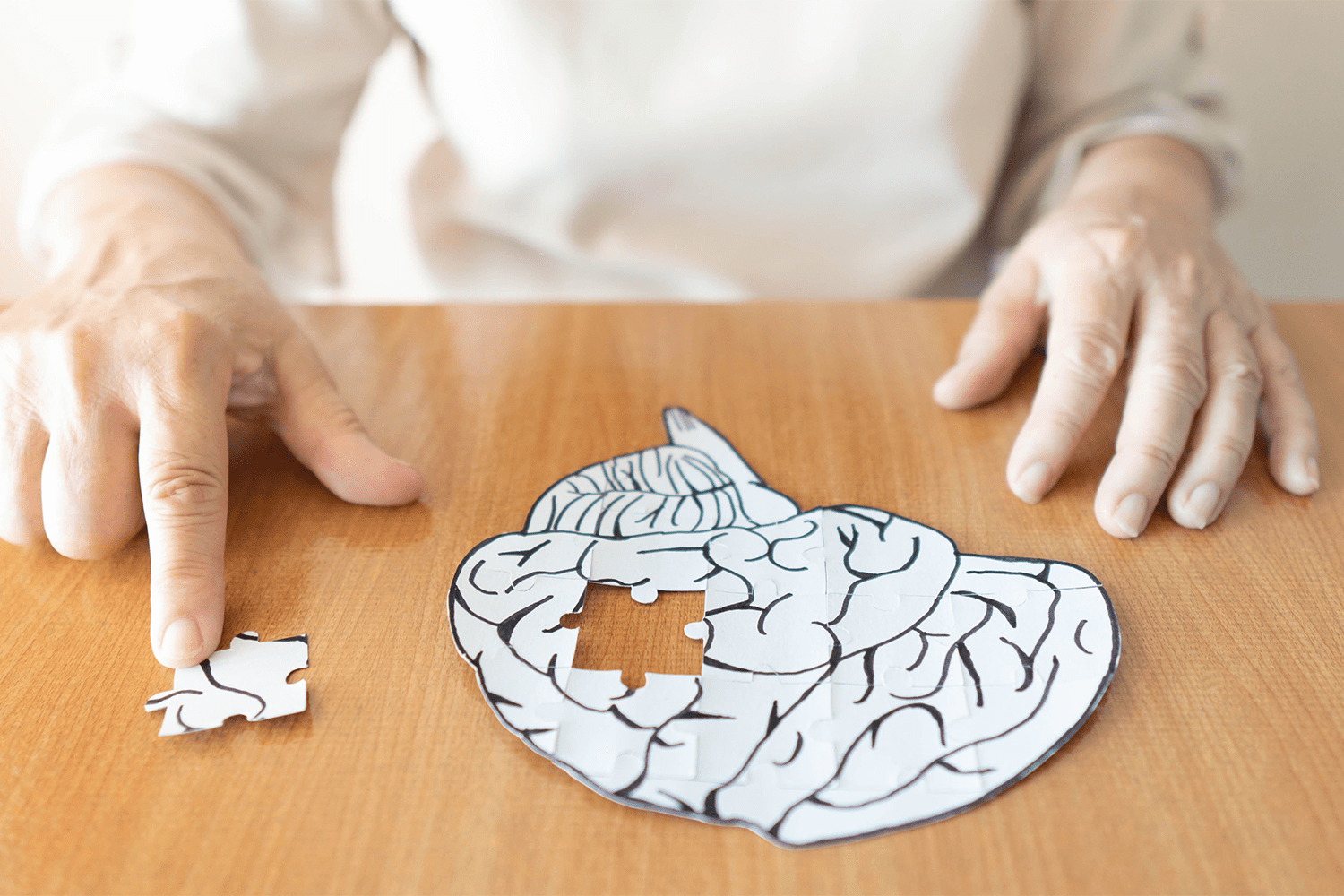Putting a band-aid over a cut or going to the doctor because of a sprained ankle feels like common sense. Physical injuries can be painful and uncomfortable, so it’s important to get them checked out.
But what about injuries that you can’t see? Mental health conditions like depression or anxiety are just as detrimental as a broken bone, yet they often go undiagnosed. And for senior populations who have difficulty expressing their feelings, it can be even harder to get proper care for your loved ones.
Mental health can lead to abnormal behaviors. If you notice that your family member is lashing out, extra aggressive, or acting in unusual ways, it might be the byproduct of an underlying mental condition.
Mental health has a tendency to decline over time, so making sure your elderly loved one’s are getting the care they need to lead a happy and full life is essential. Let’s talk about the differences between mental and behavioral health as well as some of the best ways to bring them relief.
Mental Health vs. Behavioral Health
Mental health refers to your internal state of well-being, including your thoughts, stresses, and emotions. It has major effects on your quality of life. Conditions like depression, anxiety, obsessive-compulsive disorder, or PTSD can weaken your mental health.
Behavioral health is a blanket term that includes mental health, but it also takes into consideration the well-being of your body. Behavioral health is the way you present yourself to the outside world.
One way to think of it is that mental health is internal, whereas behavioral health is external. However, they both have a direct effect on one another. For instance, having OCD can cause you to behave differently, such as frequently washing your hands or doing rituals before you leave the house. On the other hand, lashing out on a friend might make you feel anxious or guilty on the inside.
Either way, both of these are important aspects for the holistic wellbeing of senior populations. Younger individuals may have an easier time expressing their desires, wants, or feelings, making it easier for mental health professionals to come up with a treatment plan. But for seniors, it can be a lot harder to convey emotion, especially if conditions like dementia have diminished their ability to verbalize.
The good news is that specialists in geriatric mental health exist, and they know how to recognize the signs.
Recognizing Symptoms of Common Mental Health Conditions
Long term care facilities devote a lot of time and resources to treatment of physical pain and musculoskeletal setbacks. However, behavioral health is often overlooked. Waltham Clinic’s team of specialists seeks to provide holistic care for your loved one’s overall wellbeing — and that includes mental health care.
At least one in four older adults experience some form of mental disorder. And since mental health can have a direct effect on their behaviors and overall happiness, it’s important to try to recognize the symptoms before it becomes too serious.
Dementia
Dementia is an umbrella term for memory loss, language deterioration, and loss of critical thinking abilities with age. These often interfere with everyday life.
Symptoms of dementia include:
- Problems with short term memory
- Difficulty preparing meals
- Trouble remembering appointments
- Wandering to unknown locations
The symptoms of dementia are progressive, meaning they gradually get worse over time. While there is no known treatment for dementia, behavioral health specialists can help alleviate some of the co-occurring disorders like anxiety and depression to make your loved one as happy as possible.
Anxiety
Anxiety is marked by persistent feelings of worry or fear. Many older adults experience anxiety, yet the condition goes underdiagnosed in senior populations.
There are risk factors for anxiety such as sleep disturbances of stressful life events. However, chronic medical conditions are one of the biggest contributors of anxiety to older individuals. Pain and stress are closely related to one another, so if you can alleviate one, the other might subside as well.
There are some behaviors that may alert you to an anxiety disorder in your older family members. This includes:
- Avoiding routine activities or social situations
- Shallow breathing, trembling, or sweating
- Aggression or irritation
- Checking and rechecking for safety
Depression
Depression is a mood disorder marked by persistent feelings of hopelessness, sadness, or loss of pleasure. It is not a normal part of aging, but many older adults feel depression due to stressful events such as death of friends, moving from work to retirement, or being physically unable to function independently.
Sadness is often not the main symptom for older adults with depression. Instead, they may be abnormally tired, grumpy and irritable, or have trouble sleeping. Additionally, attention problems may be caused by depression, and it might look very similar to dementia.
Mental Health Treatments for Seniors
If a mental health condition is recognized in your loved one, specialists can work to provide a number of therapies to bring them relief. Here are a few of the things they may try to improve your family member’s quality of life.
Pinpoint the Underlying Cause
Diagnosing the condition is the first, and arguably most important, step in the process. The reason is because it’s common for the underlying cause of anxiety or stress to have to do with a medical condition.
For instance, it might become clear that your loved one is experiencing indigestion, heart problems, or a sprained ankle. If these physical conditions can be satisfied, their behavioral health may improve as a byproduct.
Talk Therapy
Aging comes with a lot of stress on its own, and allowing your loved one to speak with a behavioral health counselor might be an effective treatment option. Those who undergo talk therapy alone experience a 64% improvement in their symptoms, on average.
With that said, there are some limitations to talk therapy when it comes to older populations. Verbal impairments, cognitive decline, hearing and vision, and immediate memory can make it hard to engage with seniors in a typical fashion.
The good news is that talk therapy is not the only option.
Medication
Geriatric psychiatry is a specialized area of psychiatry that focuses on the behavioral and mental well-being of older adults. Specialists in this area understand how chronic illness and aging can affect mental health, and their care focuses on prevention, diagnosis, and treatment through medication.
Psychiatric medications including antidepressants or antipsychotics can be effective ways to bring relief to your loved one’s mental health condition. In fact, psychiatric drugs were found to be just as effective as general medications to relieve physical ailments.
What to Expect from Behavioral Health and Wellness?
Geriatric mental health specialists are devoted to improving the quality of life of your loved ones. In turn, you can have some relief that they are living the most full and enriching life possible.
During the first screening, the provider will ask your family member a series of detailed questions to assess mental wellness and cognition. They may also conduct a physical exam and request lab work to confirm or rule out a physical condition that might explain their behavior.
They may also ask you, as the caregiver, some questions about their overall behavior. Try to be as precise and detailed as possible. Every bit of information can help them craft the best treatment plan possible.
In Conclusion
Mental health and behavioral health are two important components of a senior’s life. Mental health refers to internal emotional state, whereas behavioral health is more concerned about the outward expression of these internal feelings. For seniors, it can be difficult to diagnose and treat mental health conditions due to a number of barriers.
Key takeaways:
- Some of the most common mental health conditions in seniors include dementia, anxiety, and depression.
- Understanding symptoms is important for giving providers more detailed information.
- Physical conditions are often the underlying cause of many behavioral health problems in seniors.
- Psychiatric medications are effective treatment options, especially when language impairments prevent talk therapy from being accessible.
Many long term care facilities only focus on physical health, but Lightyear Health seeks to close the gap through patient-focused holistic care. To learn more about our service, click here.
Sources:
Seniors and Mental Health | World Health Organization



